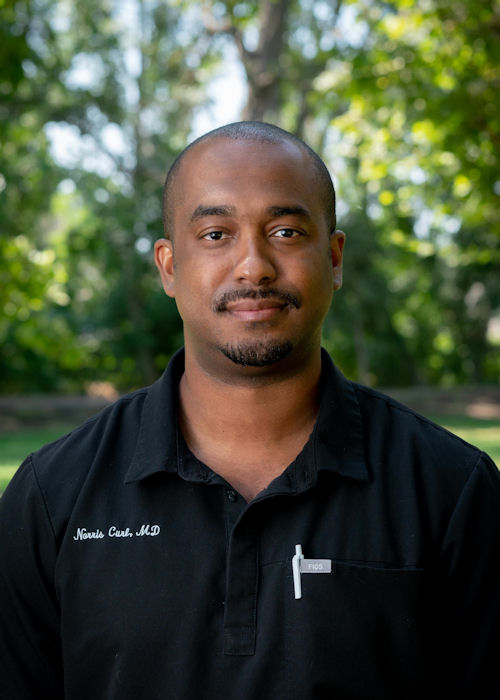Those working in law enforcement often face taboos regarding seeking and receiving treatment. However, law enforcement personnel experience traumatic events that can be difficult to cope with. Employees who have experienced these events over a period of time sometimes turn to substance use, which can eventually lead to addiction. Overcoming taboos when considering treatment for mental health or substance use disorder (SUD) is crucial for taking steps toward sobriety and a more fulfilling life.
At First Steps Recovery, clients are supported as they overcome these negative perceptions, put themselves first for a self-directed recovery, and learn to lead a healthier life. First Steps Recovery also provides a community for those in law enforcement, which can support them in overcoming taboos.
Taboos in Law Enforcement About Mental Health or Substance Use Disorder Treatment
There are many stigmas, misconceptions, and taboos regarding those in law enforcement seeking and receiving mental health or SUD treatment. It is common for those struggling with these disorders to not feel welcome in opening up about their thoughts and feelings. Instead, their experiences are disregarded and they are expected to power through and “be strong.” However, this mindset is detrimental to long-term health. Experiencing traumatic events and finding ways to cope with these experiences does not mean someone is weak or ill-suited for the job.
This problem is exacerbated when coworkers or employers either do not see an issue with substance misuse or completely ignore the issue at hand. Due to this, it is difficult for those in law enforcement to reach out and gather support from their peers as they seek out treatment. One may begin to feel isolated, which can worsen the negative symptoms. The lack of support from direct peers is often a prominent factor in clients feeling hesitant to seek and receive treatment.
However, mental health is an essential element of a person’s life. While it may be a taboo topic, mental health treatment and recovery can be empowering for an individual. Finding help can pave the way for a healthy life free of addiction and mental health issues. Talking about mental health should be encouraged, and those struggling with mental health should be supported. This promotes an uplifting community and environment where all individuals can grow.
How Does First Steps Recovery Help Clients in Overcoming Taboos?
Overcoming taboos is important. First Steps Recovery helps new clients who are facing these taboos or stigmas in law enforcement as they take the first step of their journey. The facility is a welcoming place for all clients where they are encouraged to explore their addiction or mental health issues beyond the surface in order to completely heal. It is a nonjudgmental environment where clients can heal and grow at their own pace and invite sobriety and strength into their lives.
First Steps Recovery works to help clients overcome taboos in law enforcement by creating a safe space in group therapies where clients can connect with each other. Support is also provided by promoting a self-directed recovery and assisting clients in advocating for themselves beyond the treatment facility.
Finding a Community at First Steps Recovery That Supports Overcoming Taboos
The community for law enforcement at First Steps Recovery is built through group therapy. Group therapy brings clients together to explore their shared experiences and provide hope and advice for each other. While beginning treatment can be very intimidating, especially for those in law enforcement who are faced with stigmas, group therapy can act as a space for clients to release stress surrounding social pressures.
Clients are able to discuss their experiences as well as their feelings and thoughts about facing stigmas in law enforcement. They can bounce advice off of one another to gain support in overcoming taboos in the workplace. Group therapy is a safe space for clients where everyone supports each other without judgment.
Self-Directed Recovery and Learning to Live a Healthy Life
A big aspect of overcoming taboos is learning to be an advocate for oneself and also create a self-directed recovery path. These are things that are learned during one’s time at First Steps Recovery. In the work environment, it can be difficult to approach coworkers or employers with topics of mental health or addiction. However, discussing these topics with close coworkers can invite more positive feedback and support. Normalizing these issues may also lead to a breakthrough where coworkers feel seen and heard because they, too, have been suppressing their challenges.
Clients can also lead a self-directed recovery by using specific tools learned in treatment. At First Steps Recovery, there are a number of ways that self-advocacy and healthy communicative skills are worked on. This is done through pairing holistic and clinical care services.
For instance, by working on verbal communication in talk therapies and nonverbal communication in creative therapies, such as art or music therapy, clients develop a sense of inner strength that they can communicate in a healthy way to others. This is beneficial as clients transition back into the workplace and continue to lead a life of sobriety and health.
Here at First Steps Recovery, we understand that there are taboos in law enforcement that make individuals hesitant to reach out and receive treatment for mental health or addiction issues. However, law enforcement is a challenging environment to be a part of. Individuals can experience very traumatic events. These experiences can lead to mental health disorders and/or addiction, which are topics that should not be taboo. Here, we welcome clients with open arms with no judgment as they take the first steps in their healing journeys. Group therapy is a big element of healing for these clients as they share experiences with others in law enforcement and find community rather than feeling isolated. Call (844) 489-0836 to learn more.
Dr. Curl is the Medical Director and primary on-site provider for First Steps Recovery. He is a Board Certified Internist and Addiction Medicine Specialist having attended the David Geffen School of Medicine at UCLA and completing his residency at Mount Auburn Hospital with Harvard Medical School. Following several years work as an internist and physiatrist (physical medicine and rehabilitation). Dr. Curl completed the Addiction Medicine Fellowship at Howard University in Washington DC and participated as a RAM Scholar (Research in Addiction Medicine). While part of the fellowship, Dr. Curl pursued research investigating the barriers to expanding and improving medication for opioid use disorder. Following his fellowship, Dr. Curl spearheaded the Opiate Use Disorder outpatient clinic and worked in the Department of Psychiatry and Behavioral Sciences within the Howard University Hospital. In 2023, Dr. Curl completed his Board Certification in Addiction Medicine.








